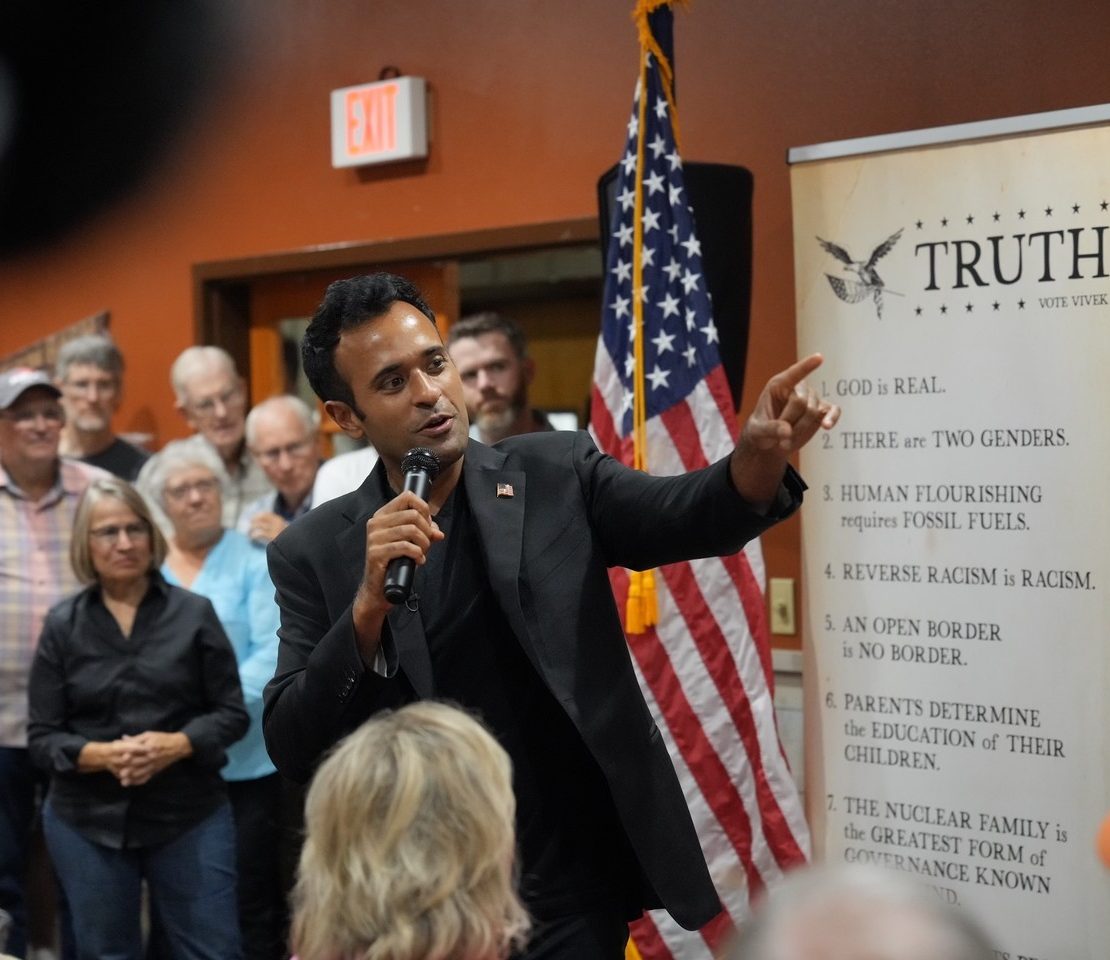Indian-origin US Republican presidential candidate Vivek Ramaswamy received a notice from Eminem, asking that he stop rapping to his songs during his campaign.
The letter comes more than a week after the biotech entrepreneur’s impromptu performance of “Lose Yourself” at the Iowa State Fair went viral on Twitter. Ramaswamy is one of the two Indian-origin candidates vying to unseat Donald Trump as the presumed 2024 Republican nominee. Ramaswamy, who likens himself as “Trump 2.0,” has risen surprisingly to third place among Republicans who are in the running for the 2024 presidential primary elections.
The letter says that Eminem’s record company, BMI “received a communication from” Eminem objecting to the Republican’s use of his “musical compositions”. “BMI will consider any performance of the Eminem works by the Vivek Ramaswamy 2024 campaign from this date forward to be a material breach” of its licence, it adds.
Politicians receiving cease and desist letters over their campaign song choices has become something of a tradition in American politics. Trump received dozens of letters from record stars – including the Rolling Stones, Queen, Adele and Pharrell Williams – informing him he lacked permission to use their music at campaign and presidential events.
In 2008, the Foo Fighters spoke out against Republican John McCain for using their tune My Hero during his presidential run and Jackson Browne filed suit against the campaign to force it to stop using the song “Running on Empty”.
Politicians today often rely on popular hits, but because that can imply a musician supports the candidate, some have asked politicians to stop playing their songs. In many cases, such as John F. Kennedy’s use of Frank Sinatra’s “High Hopes” in 1960, artists approved the use of their music as a means of endorsing or at least subtly signalling their approval of the candidate. Other times, politicians use pop songs without such approval, leading to anger and dismay – especially in cases where the songwriter holds opposing political views.
Campaigns can procure blanket licenses from performing rights organizations such as the American Society of Composers, Authors, and Publishers and Broadcast Music Inc. While performers may have no legal recourse, public attacks on the politicians using their music – such as Neil Young’s onstage denunciation of Trump over the latter’s legally cleared use of “Rockin’ in the Free World” – can lead to the song being dropped.
Politicians, especially in the US where public image matters more than anything, have had a long practice of ‘branding’ themselves using famous and crowd-favourite pop stars – many consider music a key element for establishing a candidate’s personality and inspiring followers. Many like Clinton and Obama also often release carefully curated Spotify playlists in an attempt to appear relatable and perhaps, more human. They select the music to reflect their values, their political messages, and their “real” selves. The songs also say something about the candidates’ target audiences — whether they’re young or old, straight or L.G.B.T.Q., into country, disco or hip-hop.




